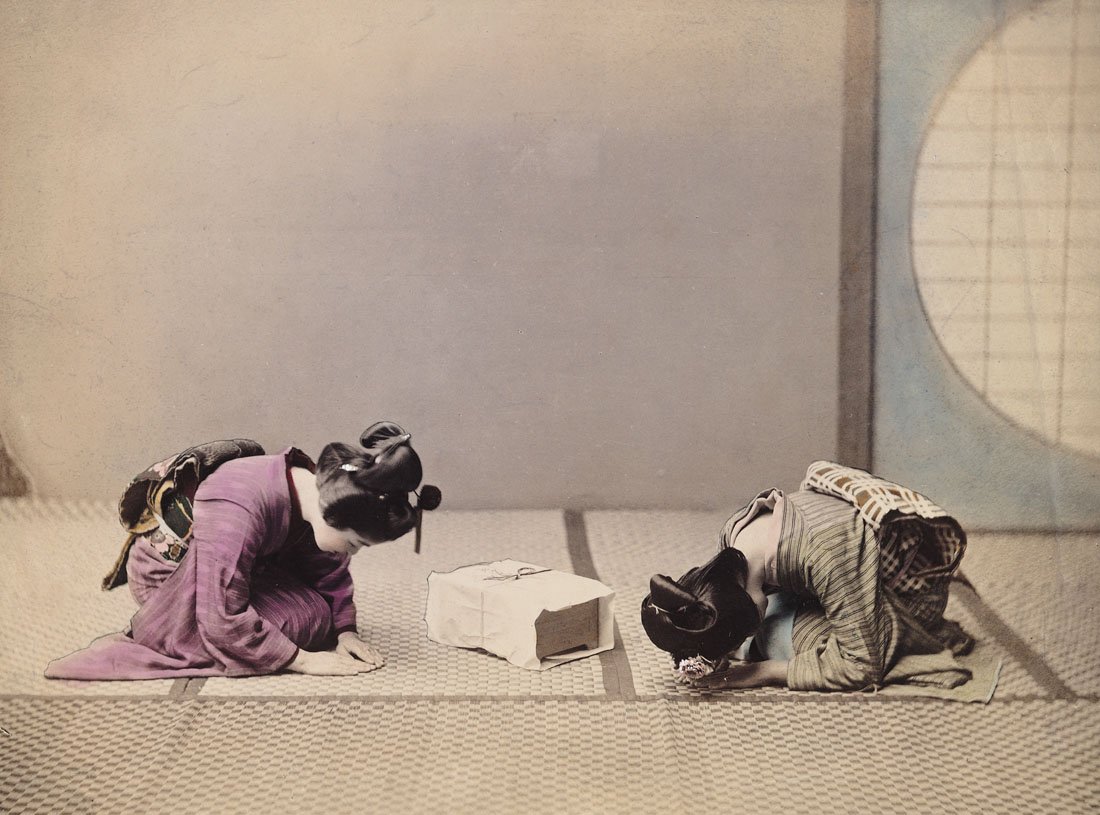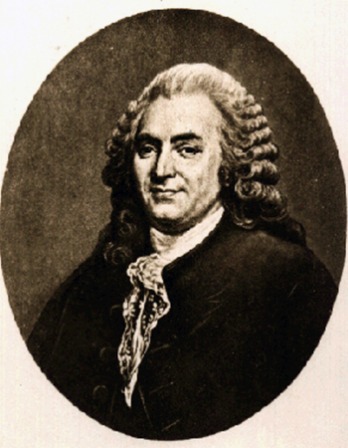Almsgiving tends to perpetuate poverty; aid does away with it once and for all.
—Eva Perón, 1949Preaching the Gospel
Andrew Carnegie spends your money.
There are but three modes in which surplus wealth can be disposed of. It can be left to the families of the decedents; or it can be bequeathed for public purposes; or, finally, it can be administered by its possessors during their lives. Under the first and second modes most of the wealth of the world that has reached the few has hitherto been applied. Let us in turn consider each of these modes. The first is the most injudicious.
In monarchical countries, the estates and the greatest portion of the wealth are left to the first son, that the vanity of the parent may be gratified by the thought that his name and title are to descend unimpaired to succeeding generations. The condition of this class in Europe today teaches the failure of such hopes or ambitions. The successors have become impoverished through their follies, or from the fall in the value of land. Even in Great Britain the strict law of entail has been found inadequate to maintain a hereditary class. Its soil is rapidly passing into the hands of the stranger. Under republican institutions the division of property among the children is much fairer; but the question which forces itself upon thoughtful men in all lands is, Why should men leave great fortunes to their children? If this is done from affection, is it not misguided affection? Observation teaches that, generally speaking, it is not well for the children that they should be so burdened. Neither is it well for the state. Beyond providing for the wife and daughters moderate sources of income, and very moderate allowances indeed, if any, for the sons, men may well hesitate; for it is no longer questionable that great sums bequeathed often work more for the injury than for the good of the recipients. Wise men will soon conclude that, for the best interests of the members of their families, and of the state, such bequests are an improper use of their means.
As to the second mode, that of leaving wealth at death for public uses, it may be said that this is only a means for the disposal of wealth, provided a man is content to wait until he is dead before he becomes of much good in the world. Knowledge of the results of legacies bequeathed is not calculated to inspire the brightest hopes of much posthumous good being accomplished by them. The cases are not few in which the real object sought by the testator is not attained, nor are they few in which his real wishes are thwarted. In many cases the bequests are so used as to become only monuments of his folly. It is well to remember that it requires the exercise of not less ability than that which acquires it, to use wealth so as to be really beneficial to the community. Besides this, it may fairly be said that no man is to be extolled for doing what he cannot help doing, nor is he to be thanked by the community to which he only leaves wealth at death. Men who leave vast sums in this way may fairly be thought men who would not have left it at all had they been able to take it with them. The memories of such cannot be held in grateful remembrance, for there is no grace in their gifts. It is not to be wondered at that such bequests seem so generally to lack the blessing.

The Life Line, by Winslow Homer, 1884. The Philadelphia Museum of Art.
There remains, then, only one mode of using great fortunes; but in this we have the true antidote for the temporary unequal distribution of wealth, the reconciliation of the rich and the poor—a reign of harmony, another ideal, differing indeed from that of the communist in requiring only the further evolution of existing conditions, not the total overthrow of our civilization. It is founded upon the present most intense individualism, and the race is prepared to put it in practice by degrees whenever it pleases. Under its sway we shall have an ideal state, in which the surplus wealth of the few will become, in the best sense, the property of the many, because administered for the common good; and this wealth, passing through the hands of the few, can be made a much more potent force for the elevation of our race than if distributed in small sums to the people themselves. Even the poorest can be made to see this, and to agree that great sums gathered by some of their fellow citizens and spent for public purposes, from which the masses reap the principal benefit, are more valuable to them than if scattered among themselves in trifling amounts through the course of many years.
If we consider the results which flow from the Cooper Institute, for instance, to the best portion of the race in New York not possessed of means, and compare these with those that would have ensued for the good of the masses from an equal sum distributed by Mr. Cooper in his lifetime in the form of wages, which is the highest form of distribution, being for work done and not for charity, we can form some estimate of the possibilities for the improvement of the race which lie embedded in the present law of the accumulation of wealth. Much of this sum, if distributed in small quantities among the people, would have been wasted in the indulgence of appetite, some of it in excess, and it may be doubted whether even the part put to the best use, that of adding to the comforts of the home, would have yielded results for the race, as a race, at all comparable to those which are flowing and are to flow from the Cooper Institute from generation to generation. Let the advocate of violent or radical change ponder well this thought.
We might even go so far as to take another instance—that of Mr. Tilden’s bequest of $5 million for a free library in the city of New York; but in referring to this one cannot help saying involuntarily: How much better if Mr. Tilden had devoted the last years of his own life to the proper administration of this immense sum; in which case neither legal contest nor any other cause of delay could have interfered with his aims. But let us assume that Mr. Tilden’s millions finally become the means of giving to this city a noble public library, where the treasures of the world contained in books will be open to all forever, without money and without price. Considering the good of that part of the race which congregates in and around Manhattan, would its permanent benefit have been better promoted had these millions been allowed to circulate in small sums through the hands of the masses? Even the most strenuous advocate of communism must entertain a doubt upon this subject. Most of those who think will probably entertain no doubt whatever.
Poor and restricted are our opportunities in this life, narrow our horizon, our best work most imperfect; but rich men should be thankful for one inestimable boon. They have it in their power during their lives to busy themselves in organizing benefactions from which the masses of their fellows will derive lasting advantage, and thus dignify their own lives. The highest life is probably to be reached, not by such imitation of the life of Christ as Count Tolstoy gives us, but, while animated by Christ’s spirit, by recognizing the changed conditions of this age, and adopting modes of expressing this spirit suitable to the changed conditions under which we live, still laboring for the good of our fellows, which was the essence of his life and teaching, but laboring in a different manner.
This then is held to be the duty of the man of wealth: to set an example of modest, unostentatious living, shunning display or extravagance; to provide moderately for the legitimate wants of those dependent upon him; and, after doing so, to consider all surplus revenues which come to him simply as trust funds, which he is called upon to administer, and strictly bound as a matter of duty to administer in the manner which, in his judgment, is best calculated to produce the most beneficial results for the community—the man of wealth thus becoming the mere trustee and agent for his poorer brethren, bringing to their service his superior wisdom, experience, and ability to administer, doing for them better than they would or could do for themselves.
The best uses to which surplus wealth can be put have already been indicated. Those who would administer wisely must indeed be wise; for one of the serious obstacles to the improvement of our race is indiscriminate charity. It were better for mankind that the millions of the rich were thrown into the sea than so spent as to encourage the slothful, the drunken, the unworthy. Of every thousand dollars spent in so-called charity today, it is probable that $950 is unwisely spent—so spent, indeed, as to produce the very evils which it hopes to mitigate or cure. A well-known writer of philosophic books admitted the other day that he had given a quarter of a dollar to a man who approached him as he was coming to visit the house of his friend. He knew nothing of the habits of this beggar, knew not the use that would be made of this money, although he had every reason to suspect that it would be spent improperly. This man professed to be a disciple of Herbert Spencer; yet the quarter dollar given that night will probably work more injury than all the money will do good which its thoughtless donor will ever be able to give in true charity. He only gratified his own feelings, saved himself from annoyance—and this was probably one of the most selfish and very worst actions of his life, for in all respects he is most worthy.
In bestowing charity, the main consideration should be to help those who will help themselves; to provide part of the means by which those who desire to improve may do so; to give those who desire to rise the aids by which they may rise; to assist, but rarely or never to do all. Neither the individual nor the race is improved by almsgiving. Those worthy of assistance, except in rare cases, seldom require assistance. The really valuable men of the race never do, except in case of accident or sudden change. Everyone has, of course, cases of individuals brought to his own knowledge where temporary assistance can do genuine good, and these he will not overlook. But the amount which can be wisely given by the individual for individuals is necessarily limited by his lack of knowledge of the circumstances connected with each. He is the only true reformer who is as careful and as anxious not to aid the unworthy as he is to aid the worthy, and perhaps even more so, for in almsgiving more injury is probably done by rewarding vice than by relieving virtue.
The rich man is thus almost restricted to following the examples of Peter Cooper, Enoch Pratt of Baltimore, Mr. Pratt of Brooklyn, Senator Stanford, and others, who know that the best means of benefiting the community is to place within its reach the ladders upon which the aspiring can rise—free libraries, parks, and means of recreation, by which men are helped in body and mind; works of art, certain to give pleasure and improve the public taste; and public institutions of various kinds, which will improve the general condition of the people; in this manner returning their surplus wealth to the mass of their fellows in the forms best calculated to do them lasting good.

Two Japanese Women Presenting and Accepting a Gift, by Felice Beato, c. 1875. © Archives Larousse, Paris, France/Bridgeman Images
Thus is the problem of rich and poor to be solved. The laws of accumulation will be left free, the laws of distribution free. Individualism will continue, but the millionaire will be but a trustee for the poor, entrusted for a season with a great part of the increased wealth of the community, but administering it for the community far better than it could or would have done for itself. The best minds will thus have reached a stage in the development of the race in which it is clearly seen that there is no mode of disposing of surplus wealth creditable to thoughtful and earnest men into whose hands it flows, save by using it year by year for the general good. This day already dawns. Men may die without incurring the pity of their fellows, still sharers in great business enterprises from which their capital cannot be or has not been withdrawn, and which is left chiefly at death for public uses; yet the day is not far distant when the man who dies leaving behind him millions of available wealth, which was free for him to administer during life, will pass away “unwept, unhonored, and unsung,” no matter to what uses he leaves the dross that he cannot take with him. Of such as these the public verdict will then be: “The man who dies thus rich dies disgraced.”
Such, in my opinion, is the true gospel concerning wealth, obedience to which is destined someday to solve the problem of the rich and the poor, and to bring “peace on earth, among men goodwill.”

Andrew Carnegie
A factory boy at the age of twelve and superintendent of the Pennsylvania Railroad Company’s Pittsburgh division eleven years later, Carnegie seized upon new innovations in the steel industry and built several plants in the 1870s, selling his company to J. P. Morgan for $480 million in 1901. Over the course of the next eighteen years Carnegie gave away $350 million; his money helped build 2,811 libraries. When asked by a friend why he had donated 7,689 organs to churches, Carnegie replied, “To lessen the pain of the sermons.”


